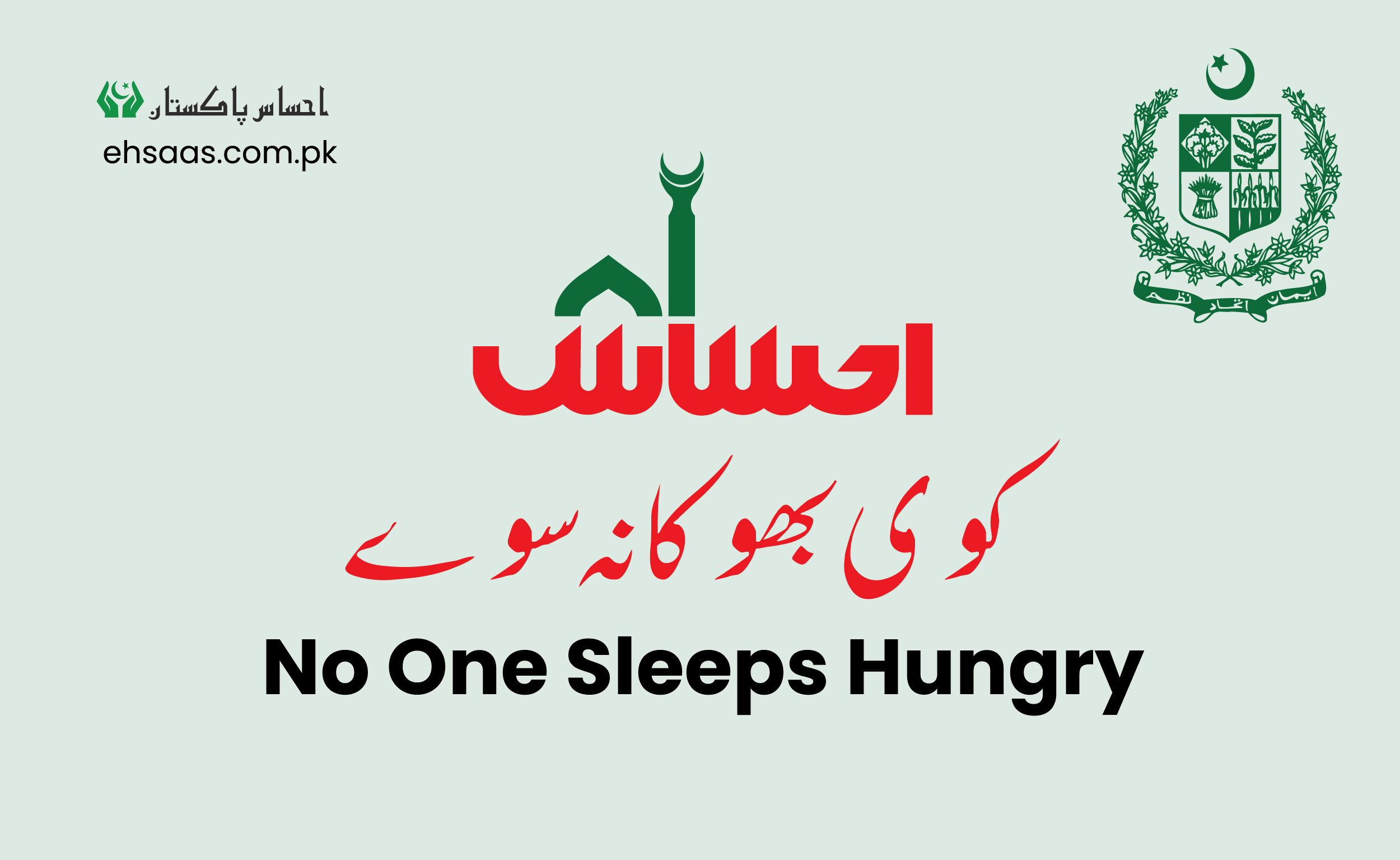Ehsaas Koi Bhooka Na Soye Program – Register Online
In a country where millions live below the poverty line, access to even one decent meal a day can be a luxury. That’s where the Ehsaas Koi Bhooka Na Soye (EKBNS) Program came in—a powerful initiative that aimed to eliminate hunger by serving freshly cooked meals to the most vulnerable members of society.

Launched under the broader Ehsaas Program by former Prime Minister Imran Khan, this initiative quickly became a ray of hope for daily wage earners, laborers, travelers, elderly citizens, women, and children across Pakistan. The program was managed in collaboration with Pakistan Bait-ul-Mal (PBM) and supported by private welfare organizations like Saylani Trust and Daraz.
Let’s dive into what made this program so impactful—and why its revival is still being demanded by many.
Purpose of the EKBNS Program
The primary goal of the Ehsaas Koi Bhooka Na Soye Program was simple yet powerful:
👉 “No one should sleep hungry in Pakistan.”
It was designed to:
- Provide free, hygienic, and freshly cooked meals
- Reach underprivileged people, including laborers, travelers, homeless individuals, and unemployed citizens
- Promote social welfare, compassion, and solidarity within the nation
There was no registration required. Anyone in need could walk up and receive food—no questions asked, no ID needed.
How the Program Worked
The EKBNS Program used a mobile food van network to distribute meals efficiently and respectfully.
Two Types of Food Trucks:
- Mobile Kitchen Trucks
- Prepared meals on-site
- Served up to 200 people at a time
- Equipped with kitchens, chefs, and food servers
- Food Distribution Trucks
- Delivered pre-cooked meals
- Could serve 500+ people per route
These trucks visited 4–5 stops daily, staying at each point for about 30 minutes. Common stop areas included:
- Hospitals
- Bus and railway stations
- Industrial zones and labor hubs
- Areas without Langar Khanas or Panahgahs within a 3 km radius
Panahgahs (shelters) also served as rest stops for cleaning, refueling, and preparing the next route.
Daily Meal Menu
Meals were not only free but also nutritious and thoughtfully prepared. Here’s what the weekly food schedule looked like:
| Day | Meal |
| Monday | Channay & Roti (چنے اور روٹی) |
| Tuesday | Dal Masoor & Roti (دال مسور اور روٹی) |
| Wednesday | Dal Chana & Roti (دال چنے اور روٹی) |
| Thursday | Dal Masoor & Roti (دال مسور اور روٹی) |
| Friday | Channay & Roti (چنے اور روٹی) |
| Saturday | Dal Moong & Roti (دال مونگ اور روٹی) |
| Sunday | Dal Channay & Roti (دال چنے اور روٹی) |
✨ Special menus were prepared during Ramadan and other national occasions.
Who Could Benefit?
The program was open to anyone in need, including:
- Daily wage earners
- Homeless individuals
- Students and travelers
- Elderly people
- Patients or their attendants
- Unemployed and disabled individuals
No CNIC (ID card) was required, although presenting one could sometimes help you receive an additional meal pack for dependents.
Reach & Impact
- Started in March 2021, initially in Rawalpindi and Islamabad
- Expanded to 29 major cities including Lahore, Multan, Faisalabad, Gujranwala, and more
- Served over 80,000 meals daily
- Each van could cater to 2,000+ people per day
- Aimed to serve up to 60 million people nationwide
The initiative was widely praised by the public, especially the working class. Even overseas Pakistanis contributed significantly to its funding.
Donations & Partnerships
The program was supported by generous donations from individuals and organizations:
- Daraz donated PKR 10 million
- Donations were collected through Bank Al Habib
Donation Account Details:
| Title | Ehsaas – Koi Bhooka Na Soye (EKBNS) |
| Account Number | 1001-0081-184076-01-9 |
| IBAN | PK82BAHL1001008118407601 |
Despite a change in government and the closure of the program under PM Shahbaz Sharif, NGOs and private donors like Saylani Welfare Trust continued providing meals independently.
Key Services and Benefits
Here’s what made this program vital:
✅ No One Sleeps Hungry
The program ensured people in dire need could find at least one meal a day—especially those living on the streets or in makeshift shelters.
✅ Enhanced Food Security
By distributing nutritious meals consistently, the program directly tackled hunger and food insecurity in urban areas.
✅ Poverty Relief
It offered a financial cushion to struggling families by removing the burden of daily meal costs.
✅ Healthier Communities
Fresh, warm, and nutritious food helped improve the overall health of recipients.
✅ Promoted Social Unity
The program fostered empathy, solidarity, and a sense of care among citizens, creating a more inclusive society.
Helpline & Feedback
Every food truck displayed two official contact numbers for:
- Complaints
- Suggestions
- Reporting misconduct
Agencies involved:
- Pakistan Bait-ul-Mal (PBM) – Daily operations
- Poverty Alleviation & Social Safety Division (PASSD) – Oversight and policy
- Saylani Trust – Food partner during pilot phase
How You Can Help or Request a Restart
If you want to support the program or request its revival, here’s how:
- Donate food, fuel, or equipment
- Sign an MoU with PBM for collaboration
- File a public request through the official government website
- Raise awareness on social media
The good news is, even though the official EKBNS program is closed, private charities and NGOs continue to feed thousands daily—regardless of background or class.
Final Thoughts
The Ehsaas Koi Bhooka Na Soye Program was more than just a food service—it was a symbol of dignity, unity, and compassion. In a country where hunger still affects millions, such initiatives are not just appreciated—they’re necessary.
Whether you’re someone in need or someone in a position to help, the spirit of this program lives on in every hot meal served with kindness.

